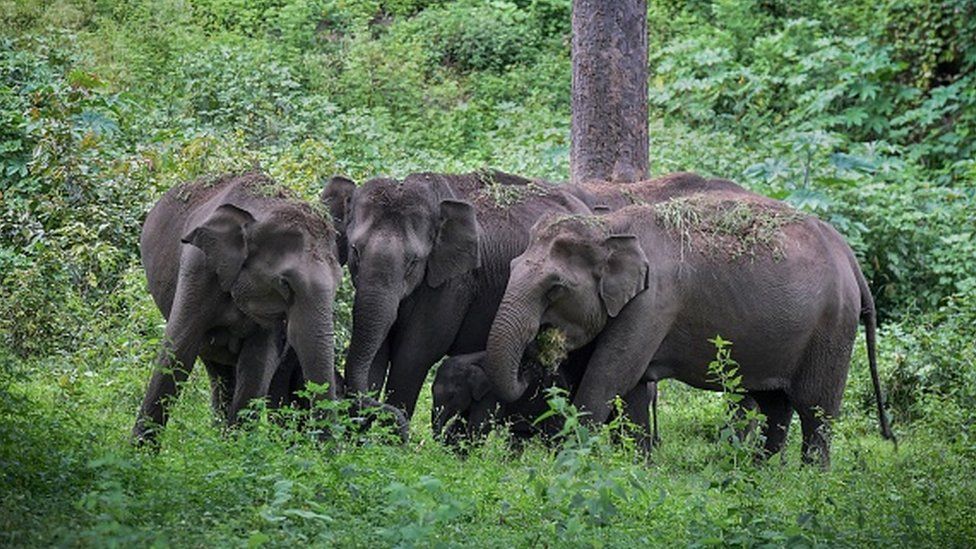 Image source, Getty Images
Image source, Getty Images
Tamil Nadu's forest department has launched an AI surveillance system to track elephant movement near railway tracks
The southern Indian state of Tamil Nadu is using an AI-based surveillance system to prevent elephant deaths on its railway tracks.
Elephant deaths on and near the state's railway tracks are rising, with 36 fatalities recorded from train collisions in the past decade, according to official data.
Eleven of these fatalities occurred on two railway tracks near Madukkarai, where the forest borders the state of Kerala. These tracks intersect with the elephants' migratory route to neighbouring forests.
In 2021, the state's high court ordered the forest department and railways to prevent elephant deaths on these tracks.
The forest department has now installed 12 towers along two of Madukkarai's rail tracks, each equipped with an AI camera capable of thermal and visible light imaging, along with live viewing.
Image source, Madan Prasad/BBC
Image caption,The cameras used by the AI system have thermal imaging and motion sensor capabilities
Project manager Ashish Rajput said that the AI system's cameras, comparable to those used by the Indian Army along the nation's borders, are programmed to even detect humans near railway lines.
When elephants are detected within 100ft of the railway track, alerts are sent to forest and railway officials, who coordinate to slow down trains and guide the elephants away to prevent collisions. Four personnel continuously monitor the system in the control room near the railway track.
The project, launched in February, has been executed at a cost of 72.4m rupees ($867,758; £683,976), says Supriya Sahu, secretary of the Tamil Nadu Forest Department.
Previously, forest personnel conducted regular patrols along railway tracks to monitor elephant activity. Ms Sahu said this method had limitations, and ensuring complete elephant safety from accidents posed "significant challenges".
Image source, Madan Prasad/BBC
Image caption,A four-person team at the control room constantly monitors the system
Within months of its implementation, the AI system has detected nearly 400 instances of elephants approaching railway tracks and promptly reported to railway authorities, thus preventing potential accidents, she said.
"Alerts are sent if any animal, not just elephants, is found nearing the track," say Mr Manikandan, who works at the control room.
This is not the first time AI is being used to protect wildlife in India. In December, India's federal railway ministry said it was implementing an AI-based surveillance system - called Gajraj, external - in elephant corridors across several states in the country.
Under this project, officials are installing sensors using AI tech near railway tracks which send notifications to alert the railway administration and the forest department about the movement of the elephants, other animals, and humans to prevent accidents.
Image source, Madan Prasad/BBC
Image caption,Train pilots say they now get real-time alerts about animal movement on the tracks even at night
In African countries like Gabon, external, Kenya and Botswana, external, AI camera systems are being used for elephant conservation efforts.
Tamil Nadu has announced plans for its expansion of the new system to five other vulnerable areas in the state, including Coimbatore, Dharmapuri, Hosur, and Gudalur.
"Technological interventions significantly reduce train-related accidents involving wildlife," Ms Sahu said.
.png)
.svg.png) 7 months ago
78
7 months ago
78



/cdn.vox-cdn.com/uploads/chorus_asset/file/25515570/minesweeper_netflix_screenshot.jpg)




 English (US) ·
English (US) ·